SUMMARY
This is AI generated summarization, which may have errors. For context, always refer to the full article.
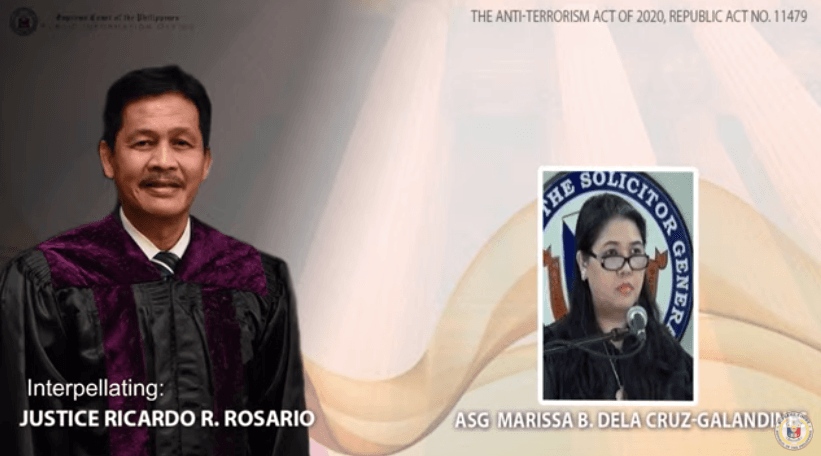
The government, through the Office of the Solicitor General (OSG), breezed through a question on red-tagging by simply calling it “truth-tagging.”
“It is the submission of the government that what it does is truth-tagging and not red-tagging, your honor,” Assistant Solicitor General Marissa dela Cruz-Galandines said during Day 6 of the anti-terror law oral arguments on Tuesday, May 4.
Supreme Court Associate Justice Ricardo Rosario no longer asked any follow-up after that answer.
It was a brief exchange on the matter as Rosario brought up the controversial issue of a journalist asking Maginhawa community pantry organizer Ana Patricia Non if she has links to communists. Pantries and eventually, Non, were red-tagged by the National Task Force to End Local Communist Armed Conflict (NTF-ELCAC).
“How will the government ensure that the anti-terror law will not unduly or unlawfully identify any person as a suspect of terrorism merely on the basis of suspicion? Does this incident support the allegations of petitioners of future contingent surveillance and red-tagging?” Rosario asked.
“The government would not like to use the term red-tagging, because red-tagging is a term that was not coined by the government, it was a term – if I may say this your honor – is a term used by the leftists,” Galandines said.
After Galandines said the government only “truth-tags,” Rosario moved on even though he said at the start of the exchange that the NTF-ELCAC red-tagged pantries “without sufficient evidence to prove their alleged connection with communists.”
During Day 5, Associate Justice Rosmari Carandang also wanted to ask government lawyers why community pantries were red-tagged by officials, but they opted to wait for the next hearing to ask National Security Adviser Hermogenes Esperon Jr himself.
Esperon was present on the virtual Zoom on Tuesday, but he was never called.
Esperon had said himself that they would “look into organizers especially if they advertise their organization that would be traced to the legal fronts of the front organization of the CPP-NPA.”
Red-tagging
Galandines’ claim that red-tagging does not exist is an echo of a line from Press Undersecretary Lorraine Badoy, one of the mouthpieces of the NTF-ELCAC.
This claim was not challenged on Tuesday, when in fact red-tagging is a term used by the Philippine Supreme Court. It’s also a term used by the United Nations.
The terms “red-tagging,” “red tag,” or “red-tagged,” used in contexts involving communism, have already been in use in foreign printed material before 1968 when the Communist Party of the Philippines was founded, contradicting Badoy’s claim that red-tagging only exists in the Philippines.
Rappler’s fact-check team found that a document printed in 1947 about US Congress hearings on the supposed communist infiltration in the motion picture industry contained the following passage: :”But I believe that when this committee or any other agency undertakes to expose communism it must be scrupulous to avoid tying a red tag on innocent people by indiscriminate labeling.”
Questions
Save for the red-tagging exchange, Rosario had asked other grilling questions on contentious provisions, alongside other junior justices.
After Carandang opened the government interpellation last week as the member-in-charge, the Supreme Court began from the most junior as it moved up on Day 6.
It started with most junior Justice Jhosep Lopez and finished with 10th most senior Justice Mario Lopez. Senior justices Estela Perlas Bernabe, Marvic Leonen, and Benjamin Caguioa, second to fourth most senior in order, had not yet interpellated the government. Neither has Chief Justice Alexander Gesmundo.
Solicitor General Jose Calida still avoided interpellations on Day 6, letting his assistants take the questions for the second consecutive hearing, the first that he’s not on the frontline of oral arguments since he took the helm of the OSG. – Rappler.com
Add a comment
How does this make you feel?
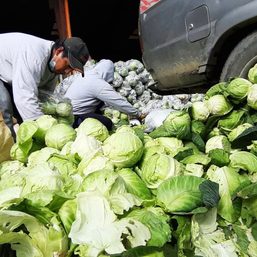
![[OPINION] Why is Japan Home Centre accepting sibuyas as payment?](https://www.rappler.com/tachyon/2023/02/japan-home-center-february-3-2023.jpg?resize=257%2C257&crop=188px%2C0px%2C900px%2C900px)
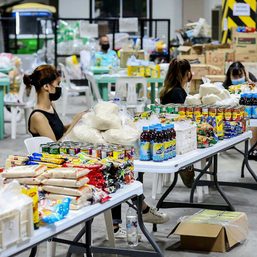
![[Editorial] Outshining the tyrant](https://www.rappler.com/tachyon/2021/12/animated-christmas-2021-carousel.jpg?resize=257%2C257&crop_strategy=attention)
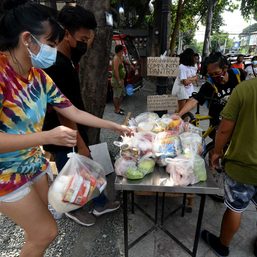
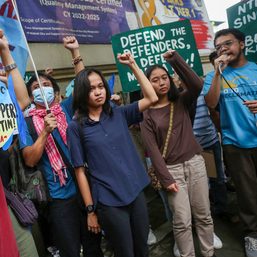
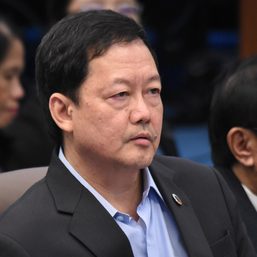

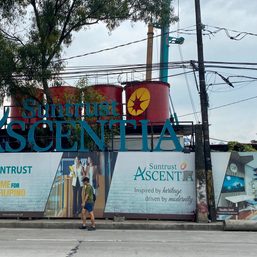






There are no comments yet. Add your comment to start the conversation.